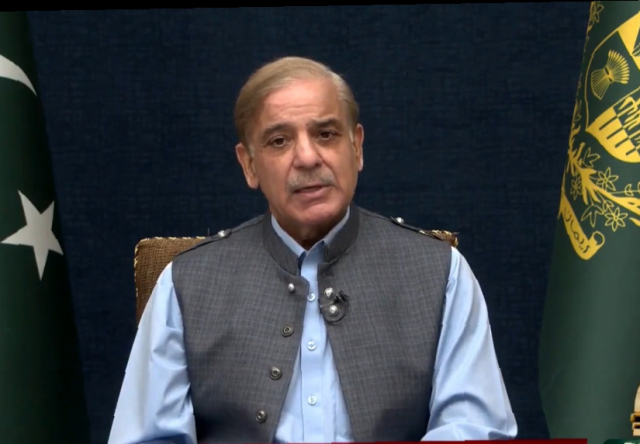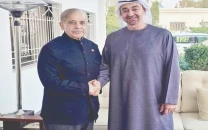Shehbaz to meet Xi in Samarkand this week
PM may also hold talks with Putin on fringes of SCO summit

Prime Minister Shehbaz Sharif is set to hold a bilateral meeting with Chinese President Xi Xinping later this week, the first face-to-face interaction between the two leaders since the change of government in Pakistan in April.
Prime Minister Shehbaz and President Xi will be meeting on the sidelines of the Shanghai Cooperation Organization (SCO) summit which will take place in Samarkand, Uzbekistan on September 15 and 16.
“Yes, the meeting between President Xi and the prime minister is confirmed on the sidelines of SCO summit,” a diplomatic source told The Express Tribune on Sunday. Other sources said that the entire gamut of bilateral relations would come under discussion.
Besides Prime Minister Shehbaz and President Xi Jinping, the other leaders expected to attend the summit include Russian President Vladimir Putin, Indian Prime Minister Narendra Modi and Iranian President Ebrahim Raisi.
While Shehbaz will address the SCO summit, the focus will also be on his bilateral meetings, including with the Chinese president on the summit fringes. He hasn’t yet met President Xi since becoming the prime minister.
Shehbaz was initially planning to visit Beijing after getting elected as prime minister five months ago, but his visit couldn’t materialise as the meeting with President Xi could not be fixed.
Although no official reason was cited, sources said because of strict Covid-19 protocols President Xi couldn’t meet Prime Minister Shehbaz. But now the Chinese leader is traveling to Samarkand – his first foreign trip in more than two years.
According to sources, both sides will review the bilateral relationship with focus on the China Pakistan Economic Corridor (CPEC). However, the recent unprecedented floods triggered by record monsoon rains will also figure high at the agenda.
The scale of devastation has put further strains on Pakistan’s struggling economy. UN Secretary-General Antonio Gutteres during his recent visit to Pakistan revealed that the deluge had cost the country $30 billion and counting.
The UN chief urged the international community to support Pakistan massively as it was paying the price for something that was created by others. Pakistan will certainly look to China for critical support for the reconstruction and rehabilitation of the flood hit areas.
In Samarkand, the prime minister is also expected to hold bilateral meetings with other SCO leaders. “He will meet almost all leaders except a couple of them,” the source said, indicating that his meeting with President Putin is also on the cards.
If Shehbaz and Putin indeed meet that would bring lot of spotlight given that former PM Imran Khan believes that one of the reasons he was ousted from power through the alleged US-backed plot was because he wanted to deepen ties with Moscow.
India will take over the SCO presidency at the upcoming summit. Some speculate the possibility of a courtesy call between Prime Minister Modi and Prime Minister Shehbaz but sources ruled out an interaction between the two leaders.
Despite initial optimism for some kind of thaw after the change of government in Pakistan, there has been no indication of any positive movement between Pakistan and India on the bilateral front.
An Indian government statement on Sunday also did not say whether Prime Minister Modi would hold bilateral talks with Shehbaz, Putin or Xi. Bejing has not yet released Xi’s travel plans, but Moscow confirmed Putin’s talks with his Chinese counterpart.
The SCO is a Eurasian political, economic and security organisation, which includes Russia, China, India, Pakistan and four Central Asian states Kazakhstan, Tajikistan, Uzbekistan and Kryghstan. The organisation is due to admit Iran.
(WITH INPUT FROM AGENCIES)


















COMMENTS
Comments are moderated and generally will be posted if they are on-topic and not abusive.
For more information, please see our Comments FAQ